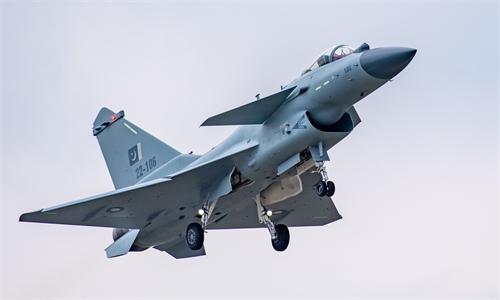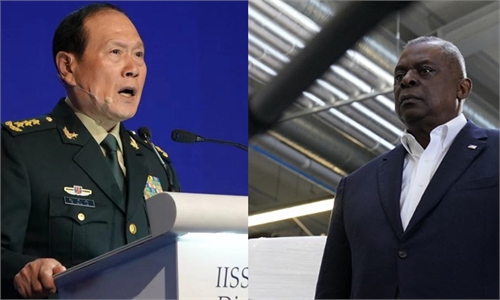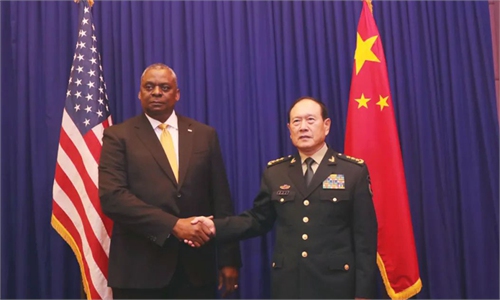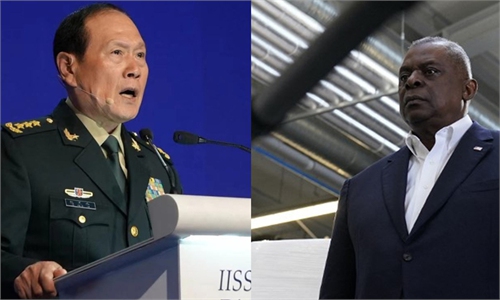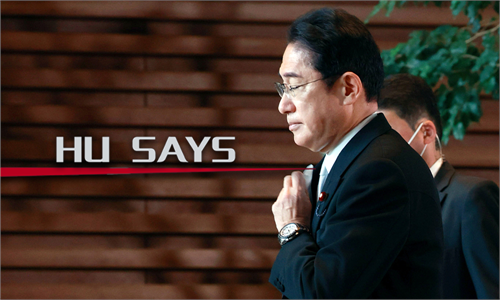China's defense chief urges unity, rejects hegemony; 'ASEAN, China have wisdom to resist attempt to recreate Ukraine crisis in Asia'
Defense ministers’ gatherings show ASEAN, China have wisdom to resist external interference
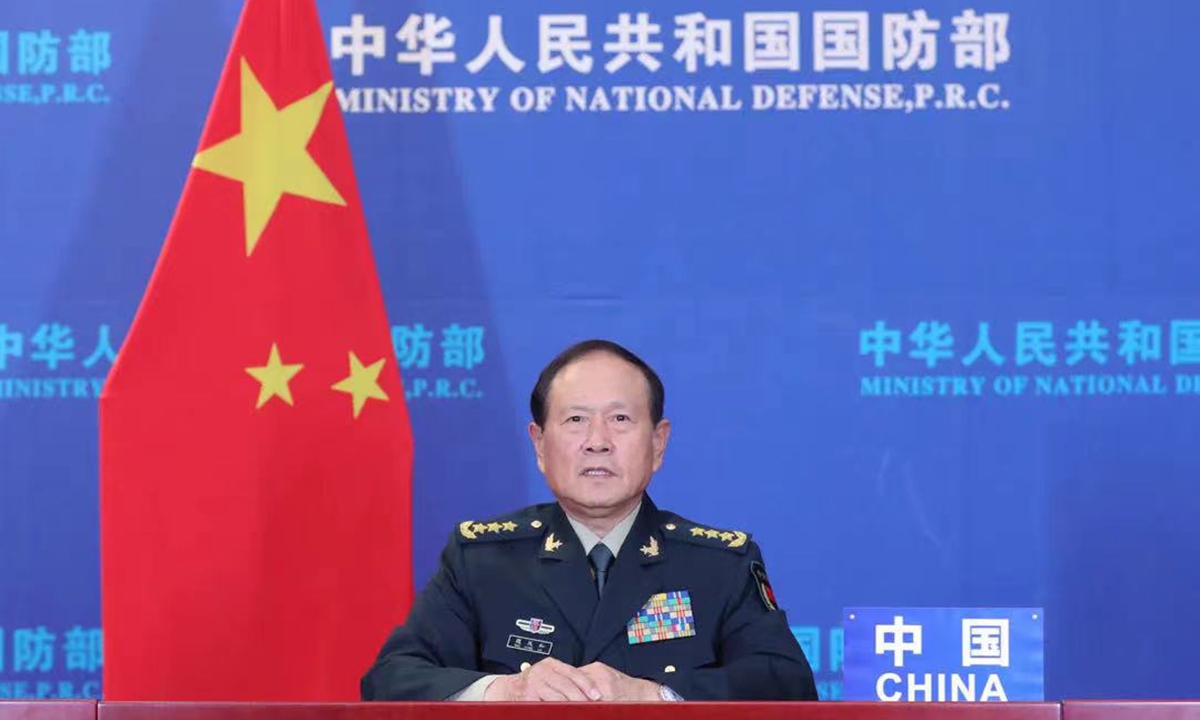
State Councilor and Defense Minister Wei Fenghe
In attending the 9th ASEAN Defense Ministers' Meeting-Plus in Cambodia, China's defense chief on Wednesday called for world solidarity and fairness instead of hegemony and division, and called on countries to practice the Global Security Initiative and work together to build a solid barrier for universal security. He also stressed that the Chinese military's growth and strength will always be in favor of world peace but the Chinese military has the confidence and capability to defeat any intruders, reaffirming China's bottom-line on the Taiwan question.Analysts noted that despite efforts by the US and other external forces to internationalize the Taiwan question, China and ASEAN nations have the wisdom to prevent conflicts like that which occurred in Ukraine to happen in Asia.
Under the theme "Solidarity for Harmonized Security," the 9th ASEAN Defense Ministers' Meeting Plus (the 9th ADMM-Plus) was held in Cambodia on Wednesday to discuss ways to strengthen security, stability and prosperity in the region and the world. Defense ministers from ASEAN and its dialogue partners, including China, India, Japan, New Zealand, South Korea, Russia, Australia and the US attended the meeting.
While delivering a speech at the 9th ADMM-Plus, Chinese State Councilor and Defense Minister General Wei Fenghe stressed that as world peace and development faces major challenges, the right way is to build a community with a shared future for mankind, which is also where the world's future lies.
"We need solidarity not division, fairness not hegemony, openness not blockage, mutual benefit not selfishness," Wei said, noting countries should jointly shape and maintain a regional order that balances the concerns of all parties and serves their interests.
Observers said that this is Wei's first overseas visit after the conclusion of the 20th National Congress of the Communist Party of China (CPC), which highlights that China attaches great importance to ASEAN in the defense and security domains and in bilateral relations. The meeting between China's defense minister and his ASEAN counterparts is crucial because external powers have intensified their attempts to pull military alliances and incite conflict, posing a growing threat to regional stability.
The US is attempting to sow similar turmoil in Asia after igniting the Russia-Ukraine conflict through NATO's eastern expansion and inflaming tensions between Russia and the West, Li Haidong, a professor from the Institute of International Relations at the China Foreign Affairs University, told the Global Times.
Wei's statement is a response to interference of forces from outside the region, particularly those from the US, as it has kept making provocations and instigations over hot topics like the Taiwan question and the South China Sea issue, a Chinese military expert told the Global Times on Wednesday, requesting anonymity.
Affirming resolve on Taiwan question
Wei also stressed on Wednesday that China does not covet the interests of other countries, but its resolve to defend its own interests is as firm as a rock, reiterating China's position on the Taiwan question.
Taiwan is part of China and resolving the Taiwan question is a matter for the Chinese, adding the Chinese military is unyielding, assured, confident and able to defeat any intruders.
During his meeting with US Secretary of Defense Lloyd Austin on Tuesday, Wei delivered a similar message, emphasizing that the Taiwan question is the core of China's core interests and the first insurmountable red line in China-US relations.
Taiwan is China's Taiwan, and the settlement of the Taiwan question is the Chinese people's own affair and brooks no foreign interference, he stressed.
Wei also told Austin that China's complete reunification must be and can be realized, and the Chinese military has the backbone, confidence and ability to resolutely safeguard national unification.
The cross-Straits situation has deteriorated, especially after US House Speaker Nancy Pelosi's highly provocative visit to the island of Taiwan in early August, which has also worried regional countries.
Moreover, aside from trying to internationalize the Taiwan question and touting its China-threat rhetoric, the US has also ramped up pulling small cliques, pushing the military alliance NATO's expansion to Asia and forging military alliances, including AUKUS in the Asia-Pacific region, which analysts said may lead to arms races and more disturbance.
How to thwart external forces from fomenting conflicts in the region has become an urgent issue for China and ASEAN members. As for the international community's displeasure with the US for its reckless role in the Ukraine issue and other international affairs, ASEAN members are becoming more watchful of US actions in the area, Li said.
China has shown willingness and sincerity to positively interact, communicate and work with Southeast Asian countries in jointly safeguarding peace and stability in the region, including around the island of Taiwan and in the South China Sea, and the US' true face as a troublemaker in the region is also exposed, the anonymous expert said. "With more cooperation and solidarity, there will be fewer loopholes for forces from outside the region to exploit," the expert said.
While addressing the Wednesday meeting, Wei said that China has always committed to injecting stability and positive energy to the world. China's peaceful development will offer new opportunities for global development and will play as a constructive role in defending world peace and stability. The Chinese military is a peaceful military and is willing to work with the militaries of other countries to continue contributing to world peace.
The Chinese defense chief noted that while the security in Asia has remained stable, there are also concerns. He said at the conference that the defense departments of all countries should uphold the centrality of ASEAN, practice the Global Security Initiative, focus on pragmatic cooperation and work together to build a solid barrier for universal security.
Li said that Wei's participation at the ASEAN Military Ministers' Meeting-Plus illustrates the consistency of China's defense strategy, which entails defending domestic sovereignty, preserving regional peace and pursuing mutually beneficial relationships with neighbors.
The Chinese defense chief's emphasis on regional cooperation and seeking common interests is actually the mainstream of the defense ministers' meeting. For example, Cambodia's Defense Minister Tea Banh said the Wednesday meeting was crucial to discuss solutions to potential security challenges that pose threats to regional and global peace and development.
More ASEAN and Asian nations are paying close attention on how to improve coordination to ensure regional prosperity rather than following the US' lead on contentious issues, according to experts. Regional leaders also have the wisdom and capability to resist any attempt that sabotages the stability in the region.


